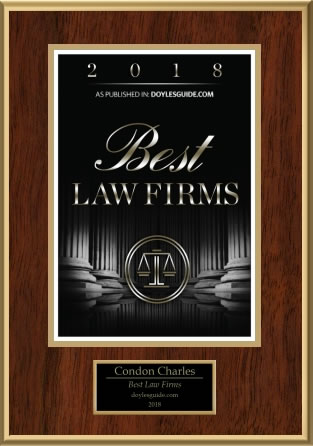PROPERTY
Toowoomba property is the cornerstone asset of most of our business and individual clients. As a result we treat every Toowoomba property conveyance with the due care and attention it deserves. Our practice is based on both a strong Toowoomba conveyancing division and a leading commercial, rural and industrial property practice.
Our team of Toowoomba lawyers and conveyancers have worked on some of the city’s major property and combined property and business transactions.
Our Toowoomba conveyancing team is highly regarded for the level of service it provides to the client throughout the matter both within Toowoomba and across the Darling Downs and Queensland. We don’t offer a cut-price, cheap conveyancing service. We provide you with a level of service and commitment that ensures you know where you are with every step of your conveyance. This service is the same whether you’re in the business of developing and selling dozens of lots or buying your first home.
Contact our team to discuss your next conveyance and you’ll understand the commitment to service provided by Condon Charles Lawyers.


Our services in this area include:
- Buying and selling residential, commercial and rural property
- Leasing of commercial, industrial and retail premises
- Advice on security, guarantee and loan documentation
- Property developments including consolidations and subdivisions
- Advice on rates, land tax, GST, stamp duty and other taxes and charges
Property services contacts:
- Chris Neville (Commercial/Rural/Industrial/Retail)
- Residential Conveyancing Team
Our other core practice areas include:
Queensland Property Ownership Laws
As with most situations where it is necessary for people to interact to reach a goal there are rules to ensure that the interactions run smoothly eliminating the chance of disputes or disagreements. This is precisely the case in Queensland when it comes to the buying and selling of real estate.
Property in Queensland includes townhouses, houses, units, retirement villages, land and timeshares. The laws that are concerned with property ownership can sometimes be difficult to understand so to ensure you obey the laws you should hire a property lawyer at Condon Charles who will make the process easy and work in your favour. There are large sums of money changing hands when property is involved, whether buying or selling so you should protect your interests by doing what is best for you financially.
Apart from hiring a lawyer you should also negotiate with a licensed real estate agent as this protects your interests under the Property Agents and Motor Dealers Act 2000 as these agents are required to match certain codes of conduct and specified standards. If you decide to go ahead and sell or purchase privately the act will not protect you.
Contracts for real estate sales
All contracts have to be in writing and follow a standard contract which has obtained approval from the Queensland Law Society and Real Estate Institute of Queensland.
Conditional contracts
You may wish to attach certain conditions to a contract such as:
- obtaining a satisfactory pest inspection and building inspection of the property;
- obtaining a loan in order to pay for the property;
- selling your current property before buying into the new property.
It is in these situations our property lawyers at Condon Charles lawyers can be of invaluable assistance.
Cooling off period
Five business days make up the cooling off period but if the contract is cancelled by you in this period you will be required to pay a fee. This is calculated based on a fraction of the buying price.
Deposit
On signing a contract you will normally be required to provide a deposit. The buyer can decide how much deposit to pay and often the seller will agree to a small amount when the signing takes place while the remainder is paid when the contract has become unconditional.
Conveyance process
Even after the signing of the contract it takes time for the property sale to reach completion. This process is referred to as conveyance. It involves the steps required to make certain that the registering of the property and land is in the buyer’s name at the government land title office. Throughout the conveyance period searches are conducted to make sure that the property concerned is in fact in the seller’s name and is not affected by such issues as proposals for the reclaiming of the land, easements, contaminated land and any other matters related to the government.
In some cases people think they can do their own conveyance but it is still advisable to get legal advice from our experienced team of property lawyers in Toowoomba as we know only too well traps that buyers and sellers fall into if they are not aware of their rights.
Before settlement is finalised when selling your property you will need to complete certain documentation and provide your Condon Charles lawyer with copies of rates and water payments and body corporate payments if applicable. Any debts have to be cleared before a sale can be completed. Also, your buyer will have to arrange payment and if he or she is taking out a mortgage. The payment to you is normally made by the money being deposited into your chosen bank account.
Once the settlement process has been completed you will have to move out of the property and that includes your personal possessions. You will need to ensure that the property is left clean. You can hand over the property’s keys to one of our lawyers at Condon Charles who will pass them on to the real estate agent managing the sale.
Final Settlement date
Our conveyance lawyer will on your behalf attend the settlement meeting where the money exchanged is finalised and the documents are exchanged that deal with the transferring of the title. Additionally, there will be attendance by your mortgagee whose duty is to provide a mortgage formal release which is exchanged for the payment amount on your loan. After the settlement, your real estate agent has the authority to release to you the deposit minus any commission that is owing and the keys will then be handed over to the new owner. To save being confronted with any extra bills make sure you tell your insurer that you have sold the property and wish to cancel the insurance.
Selling or buying at auctions
If you make the decision to buy or sell your property at an auction, usually the highest bidder will get the chance to buy the property. If you are the bidder and what you bid is accepted, you are required to sign immediately a contract that is unconditional contract. This means if you have chosen to purchase at an auction you will need to get all the facts about the property verified before the date of the auction. At auction there isn’t a cooling off period.
Mortgages are common
Because of the vast investment involved in buying property of any kind buyers usually have to borrow the money before having the ability to buy. This loan is normally sourced from a building society, a bank or another available lender. A mortgage is the most common method used. The lender, who is also called the mortgager, draws up a legal document, which is known as the mortgage. The buyer, who is called the mortgagee, offers the property as a security until the loan has been completely paid back. If loan payments are not made as requested then the lender is able to put the property up for sale and when sold can recover the unpaid loan. This type of sale is referred to as a mortgagee sale.
If the sale fails to make sufficient money to cover the amount owed to the lender you as the buyer is expected to pay the shortfall and if you don’t the lender can recover the money by taking you to court.
What is a caveat?
This is a document that stops any transactions in relation to land, meaning it stops the selling of a particular piece of land. A caveat has to be lodged at Titles Registration at the Department of Natural Resources and Water. If you would like to submit a caveat you should talk to one of our property solicitors first as you could incur costs if you do not have the legal right to lodge the caveat.
Joint tenancy
When you have ownership of a property with other people it is called a joint tenancy. You do not have a share of it as such but each of you owns the complete property together. You are not permitted to leave this type of property ownership to anyone in a will. If one of the joint tenants dies their rights to ownership passes automatically to the remaining joint tenants. This does mean that if you end up as the sole survivor you will be the property’s sole owner.
Tenant in common
With this type of property ownership you own shares in the property. This could be equal shares with the rest of the owners or a specified percentage such as 25 percent. You have the right with a tenant in common ownership pattern to transfer your share proportion to another individual. This means you could give the share to someone named in your will should you die.
Transfer duty and land tax
There are always taxes to consider when purchasing any property whether for investment purposes or as a place for you to love. All transferrals of property and land are subject to transfer duties. The amount varies over time but you can access the current rates before you buy. Land tax is a tax that is paid annually on the unimproved value of your land. If your property is your main residence for living purposes you may be exempt from paying land tax. You can take a land tax exemption eligibility test online.
Queensland and Commercial Leases
Often businesses prefer to lease commercial property in Queensland rather than buy. This could be because the business is unsure of its profitability and does not want to invest heavily in uncertainty at a particular point in time or simply because the retail property is only available on a lease and therefore cannot be purchased.
A commercial lease is quite simply a contract drawn up between the premises owner who is called the landlord and the person, called the tenant who wishes to use the retail premises to operate a business.
There are two kinds of commercial leases available in Queensland
These are retail and non-retail leases. A retail lease is for the purpose of selling goods to a consumer such as a supermarket or a cell phone store while a non-commercial retail lease is for a warehouse, or a distributor or a manufacturer of a product. Offices don’t fall into this category nor do storage or vehicle parking facilities.
A general commercial lease is based on common law meaning the two parties involved can reach their own agreements. There is some protection through both the Consumer Law Act of 2012 and the Commonwealth Australian Competition Act. These help to regulate deceptive and misleading conduct and trade practices that are disallowed. There is also the Queensland Property Law Act 1974 and Part 8 relates to leasing.
A retail lease
Retail leases for shops come under the 1994 Retail Shop Leases Act. If there is any doubt about the validity of a retail lease what the Act states prevails. The Act quite simply becomes a part of the tenant and landlord’s contract. The Retail Shop Leases Act is not applicable in certain circumstances such as if the business is offering the services of a service station. This is seen under the Trade Practices Regulations as a franchise .Also if the retail premises possesses a floor area that exceeds 1000 m sq and is leased by a corporation that is listed or subsidiary of such a corporation the act is not applicable either. There are other situations such as
- if the lease is for a temporary business e.g. a trade stall;
- the premises have been leased from the South Bank Corporation with a perpetual lease or a lease that exceeds 100 years;
- the leased premises are situated inside a amusement or theme park.
Important points about a retail shop lease
A Disclosure statement and proposed lease
The landlord of any retail lease has to offer the tenant a disclosure statement outlining key facts such as an estimate of likely outgoings. The disclosure statement has to be given to the tenant at least seven days before the commencement of the lease. A proposed lease copy has to be provided in the same time frame. The landlord also has to provide a copy of the lease that has been signed and certified within thirty days of the lease having been signed. There could be a fine if this process is not followed.
Ratchet clauses and key money are not permitted by the Act. Key Money is defined as money a landlord has demanded because he or she has agreed to renew a lease. The landlord can however ask for money to cover any legal costs such as for the preparation of a new lease. A security deposit can be requested as long as it is refundable. A ratchet clause is a clause in a lease which can prevent the amount of rent being paid from decreasing. This is not permitted.
A rent clause and a review
The lease agreement set up between the landlord and tenant should outline how any rental alterations are to take place whether it will be adjusted according to the Consumer Price Index or by an amount that is fixed. The chosen method should be included in the lease agreement. When the lease term ends the parties involved will normally attempt to negotiate a new rent. In the case of retail leases a Specialist Retail Valuer will normally be asked to provide a current market rent for the space.
Renewals and options
There are differences between lease renewals and options to renew. There is a precise clause in a lease that offers the entitlement to the tenant to request a renewal of the lease for another term. If the tenant has no option, or has no options left under the current lease, what is called a general renewal will be applicable. If the expected time for the new lease is no more than a year the landlord must tell the tenant no less than 3 months before the lease period comes to an end. If the lease is to be over a year the landlord must inform the tenant six months before the expiry date of the lease and state whether he or she is prepared to renew. There is no minimum term for a lease in Queensland unlike other states.
Repairs and Maintenance
The act does not consider any provisions for maintenance and repairs so the two parties entering in the lease agreement must be aware of those activities. The landlord in Queensland is allowed to initiate a sinking fund for any repairs and maintenance. This is a fund set up in advance. Its main points must be included in the lease agreement.
Handling Disputes
The Queensland Civil and Administrative Tribunal (QCAT) is the body responsible for overseeing any retail lease disputes as they arise. Mediation is usually suggested first and failing that a hearing is scheduled with the QCAT.
Queensland property law can be complex at times so it is advisable to contact an experienced property lawyer like Condon Charles lawyers who will ensure whatever agreements you have made with any parties obey Queensland law.




